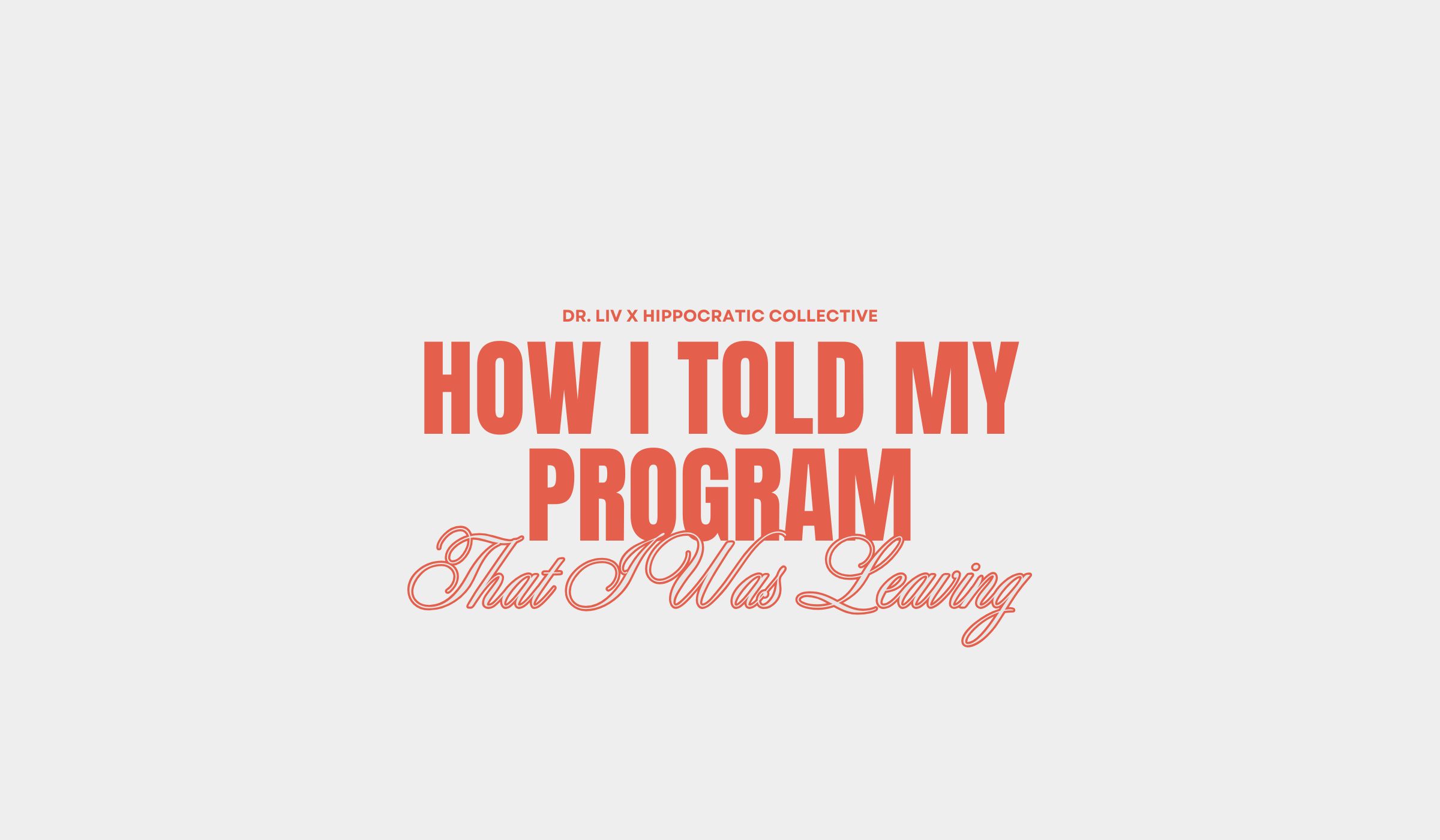Part 3: Telling My Program I Was Leaving
Ever since I started sharing my journey switching residencies, the number one question I receive is: “How did you tell your program director? And how did they react?”
Three simple (yet difficult) steps:
- Making a firm decision
- Telling my Program Director
- Finishing my intern year strong
Making a Firm Decision
When something feels “off” in residency, it’s important to approach it the way doctors approach patients: Here’s how it unfolded for me..
In other words, if your chief complaint is that something feels “off” in residency, the diagnosis and treatment plan won’t always be that you're in the wrong specialty/residency program and need to leave.
If something feels wrong, you need to be absolutely certain about the cause before you can develop an appropriate treatment plan.
Not every uncomfortable feeling means you’re in the wrong specialty. Residency is tough. Sleep deprivation, isolation, or a prickly colleague can make you want to escape, but those aren’t necessarily reasons to leave your field altogether.
For me, the pattern became clear early on in intern year. I spent hours on PubMed diving into my patients’ dermatologic diseases. I gave unsolicited presentations on rounds on the skin findings in our patients. I drafted a case report on a fixed drug eruption, unprompted. I felt genuine loss when I had to refer patients with complex derm conditions to specialists.
The diagnosis was clear: my mind and heart were pulling me toward subspecialty training.
Importantly, I was in a healthy, supportive residency and had a very positive intern year. That helped me trust that I wasn’t reacting to a negative work environment. My decision was about the specialty itself.
Treatment: Change medical specialties.
Telling My Program Director
Once I was sure, I asked my program director for an in-person meeting. I went in with three goals:
- Communicate my decision clearly
- Affirm my commitment to finishing intern year strong
- Ask for a letter of recommendation
This was, without a doubt, one of the hardest parts of the process. I had matched into my number one family medicine program. I loved the training and the people. Telling my PD I was leaving felt like I was letting down my dad.
I also knew they might wonder if I was unhappy with the program. To prevent that, I emphasized how much I valued my training, the strong evaluations I had received, and my intention to finish the year with the same energy I started.
Then came the scariest part: asking for a letter of recommendation. I asked directly:
“Can you write me a strong letter of recommendation in support of my application to dermatology residency?”
I get why this makes people uncomfortable: there aren’t many contexts in life where you end a relationship and then immediately ask for help.
Here are the reframes that made me comfortable asking:
- I worked my ass off intern year and delivered excellent patient care.
- Academic physicians write letters all the time; it’s part of the job.
- My PD wanted me to succeed in the specialty that fit me best.
And who knows, maybe my PD once made a big career pivot, or regrets a risk he didn’t take.
After our conversation, my PD was surprised but extremely supportive.
Finishing Intern Year Strong
From day one of intern year, I promised myself two things: be the best intern I could be, and stick to my values when things got tough. That didn’t change once I decided to leave.
Because my program was supportive, it wasn’t hard to stay motivated. My patients still deserved the best care I could give, and I was determined to honor that.
In fact, knowing my time in family medicine was limited made me savor it even more. It is an incredible privilege to be entrusted as someone’s primary care physician, and I’ll always carry that experience with me.
Next up: Part 4 The process of applying to a competitive specialty as a prior-year graduate


%20(1).jpg)
%20(2560%20x%201076%20px).jpg)
%20(2560%20x%201076%20px).jpg)